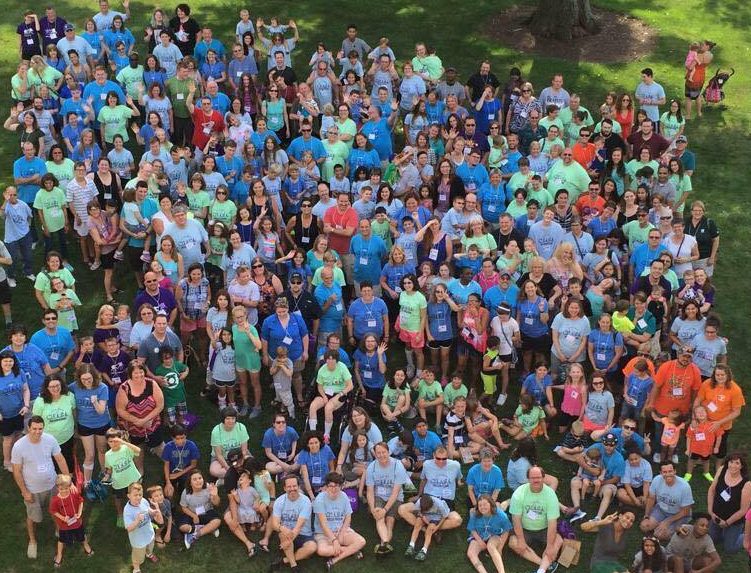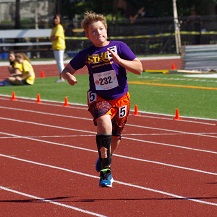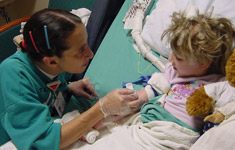
Children with hemiplegia or hemiparesis may see a variety of health care professionals. Every child is unique and some children may only be followed by a pediatrician and physical therapist, while other children may see additional specialists, depending on their needs. For example, a child who has vision issues may see a pediatric opthamologist and a child who has seizures may see a pediatric neurologist. Some parents find it helpful to keep a binder with medical records, history, list of medications, and medical test results, especially if the child sees a number of doctors and therapists.
Feel Comfortable With Your Child’s Team
It’s important that you and your child feel comfortable with all members of your child’s medical and educational team. If you’re having a particularly stressful week, it may be helpful to take a friend or family member along on important visits for support and to help you ask questions and remember what the professional has shared with you. Most parents take in a list of questions to ask during the visit. Don’t worry if the professional seems rushed – ask all questions – this person is working for you and wants to help your child. If you feel like your medical professional is not hearing you, address this and see if the two of you can work it out. Sometimes personalities differ and it just may not be a good fit. It’s okay to shop for a medical professional who works with your style of parenting.
Helpful Hints for selecting a Doctor or Therapist for Your Child
What Kinds of Medical Professionals Will My Child Need?
The following is a list of medical professionals who help children with hemiplegia. Our children are unique and your child may not see all of these professionals.
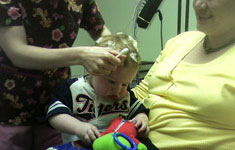 Pediatric Neurologists diagnose and treat diseases that involve the nervous system. Since the brain, spine, and eye are integral part of the nervous system, the domain of neurology overlaps that of psychiatry, orthopedics and ophthalmology. Children with hemiplegia or stroke may see a neurologist to discover the cause of their condition, recommendations for treatment, diagnosis and treatment of a seizure disorder (epilepsy) and for other information concerning their condition.
Pediatric Neurologists diagnose and treat diseases that involve the nervous system. Since the brain, spine, and eye are integral part of the nervous system, the domain of neurology overlaps that of psychiatry, orthopedics and ophthalmology. Children with hemiplegia or stroke may see a neurologist to discover the cause of their condition, recommendations for treatment, diagnosis and treatment of a seizure disorder (epilepsy) and for other information concerning their condition.
Neonatologists are specially trained pediatricians who study the development and disorders of sick newborn children.
Physiatrists (also called Physical Medicine and Rehabilitation Specialists) are familiar with rehabilitation from injuries including stroke.
Cardiologists study the heart and its functions.
Hematologists diagnose and treat diseases of the blood. A child who has had a stroke may see a hematologist for tests to determine if the child has a blood clotting disorder.
Developmental pediatricians are specially trained pediatrician who is primarily concerned with the
evaluation of children’s development. They often work in NICU follow-up clinics and help to assess and treat developmental problems.
Pediatric ophthalmologists can evaluate how well the eyes work together, exam vision and health of eyes, prescribe glasses, diagnose eye disease and perform corrective eye surgery.
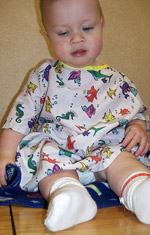 Genetic counselors are specialists who assess whether the hemiplegia or stroke may be due to an inheritable condition.
Genetic counselors are specialists who assess whether the hemiplegia or stroke may be due to an inheritable condition.
Psychologists study the human mind and human behavior. Psychologists sometimes gather information through by administering personality, performance, aptitude, and intelligence tests. Other methods include observation, interviews, questionnaires, clinical studies, and surveys. American Psychological Association offers a feature called “Find a Psychologist”. Children with hemiplegia may see a psychologist to have tests for learning differences, help with coping with the stress of having a disability, and for behavioral issues.
Neuropsychologists study the relation between the brain and behavior.
National Academy of Neuropsychology
International Neuropsychological Society
Counseling psychologists use various techniques, including interviewing and testing, to advise people on how to deal with problems of everyday living.
Developmental psychologists study the physiological, cognitive, and
social development that takes place throughout life. Some specialize in behavior during infancy, childhood, and adolescence.
American Psychological Association, Division 7
Pediatric orthopedic surgeons are concerned with deformities, injuries, and diseases of the bones, joints, ligaments, tendons, and muscles. Treatment provided by an orthopedist may include manipulation, the fitting of braces or other appliances, exercising, and surgery.
Physical therapist (PT) provide services that help restore function, improve mobility, relieve pain, and prevent or limit permanent physical disabilities of patients suffering from injuries or disease. (U. S. Department of Labor)
American Physical Therapy Association
 Physical therapist assistants and aides perform components of physical therapy procedures and related tasks selected by a supervising physical therapist. These workers assist Physical Therapists in providing services. (U. S. Department of Labor)
Physical therapist assistants and aides perform components of physical therapy procedures and related tasks selected by a supervising physical therapist. These workers assist Physical Therapists in providing services. (U. S. Department of Labor)
Psychiatrist The child and adolescent psychiatrist is a Doctor of Medicine or Doctor of Osteopathy who specializes in the diagnosis and, if indicated, the treatment of disorders of thinking, feeling and/or behavior affecting children, adolescents, and their families.
American Academy of Child & Adolescent Psychiatry
Occupational therapists (OTs) help children improve their ability to perform tasks in their daily living. They help children succeed in their “occupation” of learning, playing and growing. When skill and strength cannot be developed or improved, occupational therapy offers creative solutions and resources for carrying out the person’s daily activities. They may help children with hemiplegia with tasks such as improving hand function, strengthening hand, shoulder and torso, and eating skills. In schools they evaluate children’s abilities, recommend and provide therapy, modify classroom equipment, and in general, help children participate as fully as possible in school programs and activities. American Occupational Therapy Association offers a feature called “Find an Occupational Therapist”.
Speech-language pathologist assess, diagnose, treat, and help to prevent speech, language, cognitive, communication, voice, swallowing, fluency, and other related disorders; audiologists identify, assess, and manage auditory, balance, and other neural systems. (U. S. Department of Labor)
American Speech-Language-Hearing Association
Orthotist – are responsible for the provision of orthoses (supportive devices such as braces) to children with muscular and skeletal disabilities. They aim to maximize the function and comfort of the client by providing the most appropriate orthotic device.
The Association of Children’s Prosthetic-Orthotic Clinics




